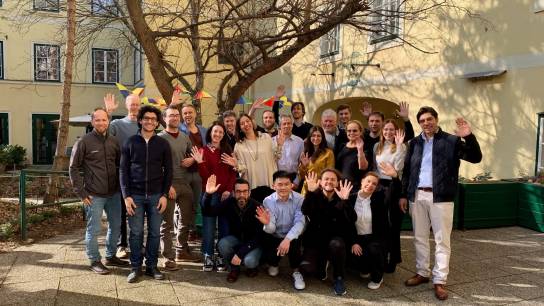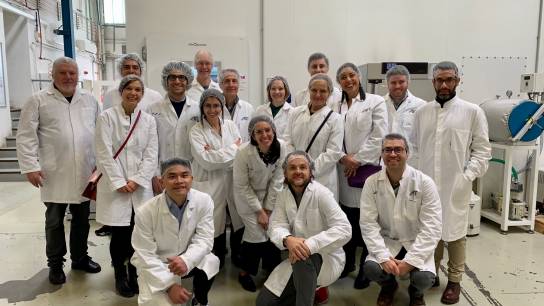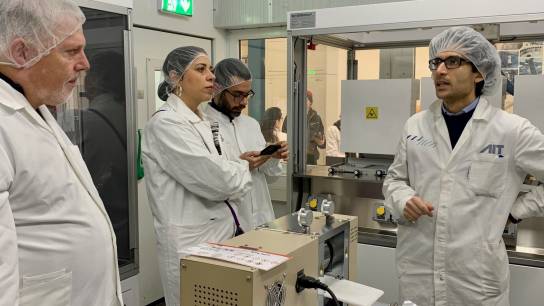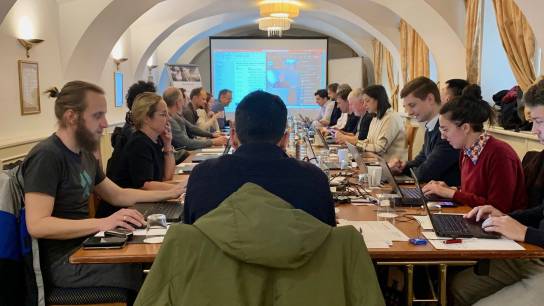Final NanoBat Consortium Meeting & Stakeholder Workshop held in Vienna
It’s always amazing how time flies. At the start of NanoBat almost three years ago, the end of the project was in the very far future, we were all excited to get started, and the Covid-19 pandemic had just hit the world. Now, that “very far future” is actually very close and NanoBat is coming to an end on March 31, 2023.
Fortunately, the worldwide pandemic situation has changed to the positive in the meantime and, unlike the Kick-off Meeting, the Final NanoBat Meeting could take place in person. The entire consortium therefore gathered in Vienna, Austria one last time on March 1-2, 2023 to prepare for the final stretch of NanoBat.
The meeting started with a lab visit at AIT. In NanoBat, AIT is providing different coatings: graphite (anode) coatings for the analysis of SEI formation during cycling, and coatings for Mg-Ion batteries which will be analysed as beyond LIB technology. In addition, they are bringing in their characterisation expertise to support nano-scale measurements of passivation layer formation during cycling of the battery cells as well as the optimisation of the test setup.
Back at the meeting venue, the agenda had a strong focus on discussing what is needed to complete the tasks in the individual Work Packages and on preparing for the upcoming final review meeting with the EC in April 2023. An underlying topic to all the discussions was the identification of the results and outcomes of the project. And there are quite some! NanoBat has produced 16 publications in the course of the project and more are planned after it’s end. Videos of our key results will soon be published on our website. And we are proud to see that some work is continued in other EU or national projects in which various NanoBat partners continue to work together (e.g., NanoMeCommons, MeBattery, or EMPHASIS.
The meeting was concluded on the 2nd day with our last Stakeholder & Advisory Board Workshop. This time, 14 participants joined us and received an update from the three clusters:
• Cluster 1: Battery Engineering
• Cluster 2: Battery Chemistry
• Cluster 3: Battery Nanotech
In addition, some hands-on examples of exploiting GHz techniques were shown.
Overall, the feedback from the participants was very positive. They were particularly interested in the module testing and type of parameters used for current as well as voltage. In addition, the impedance results, calibration used and interpretation of the module cycling data raised their interest.
Before the project ends, there will be one more virtual NanoBat Workshop. It’s on Advanced electrical test methods for battery cell classification and will take place on March 28, 2023.
Register now! It’s free!



